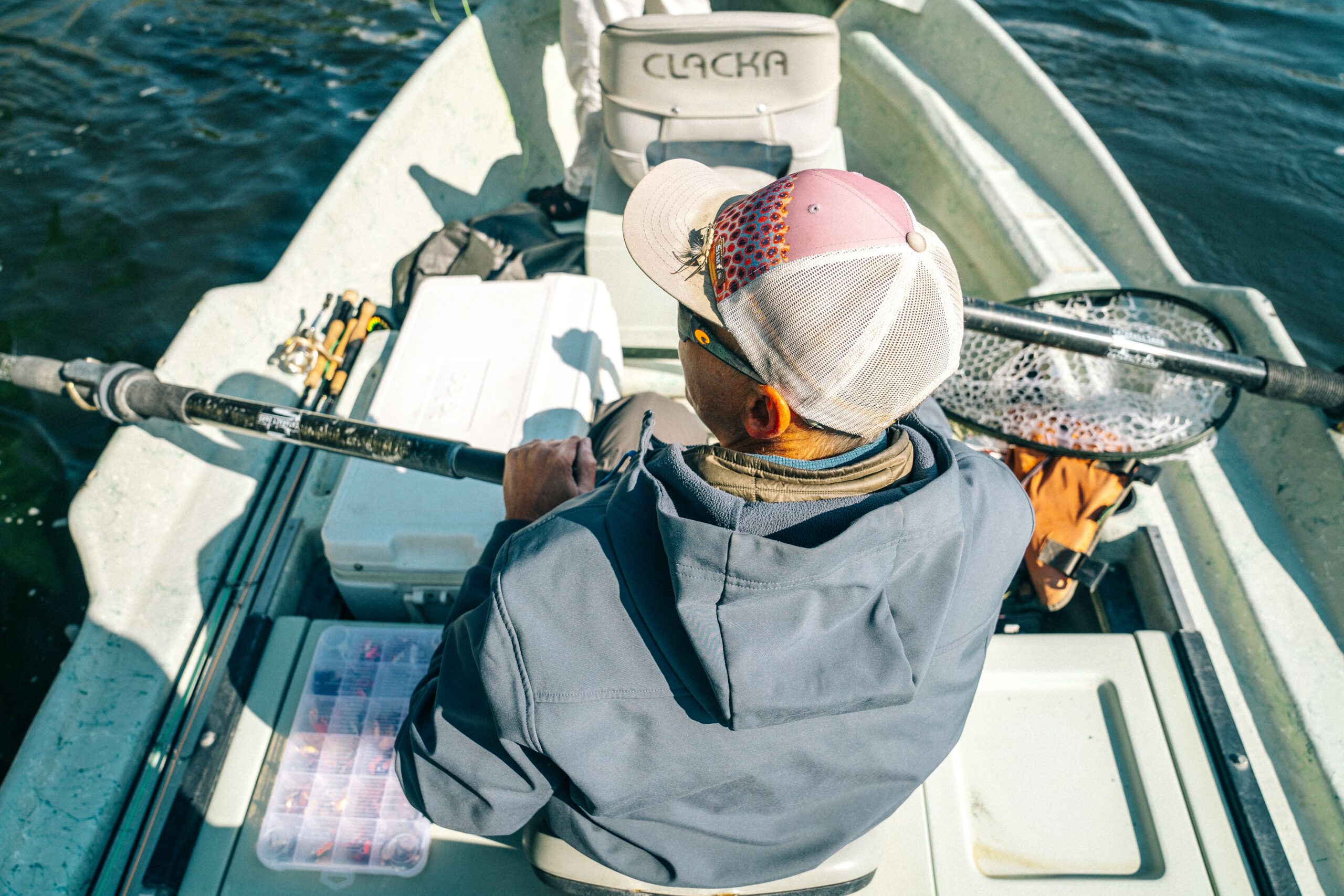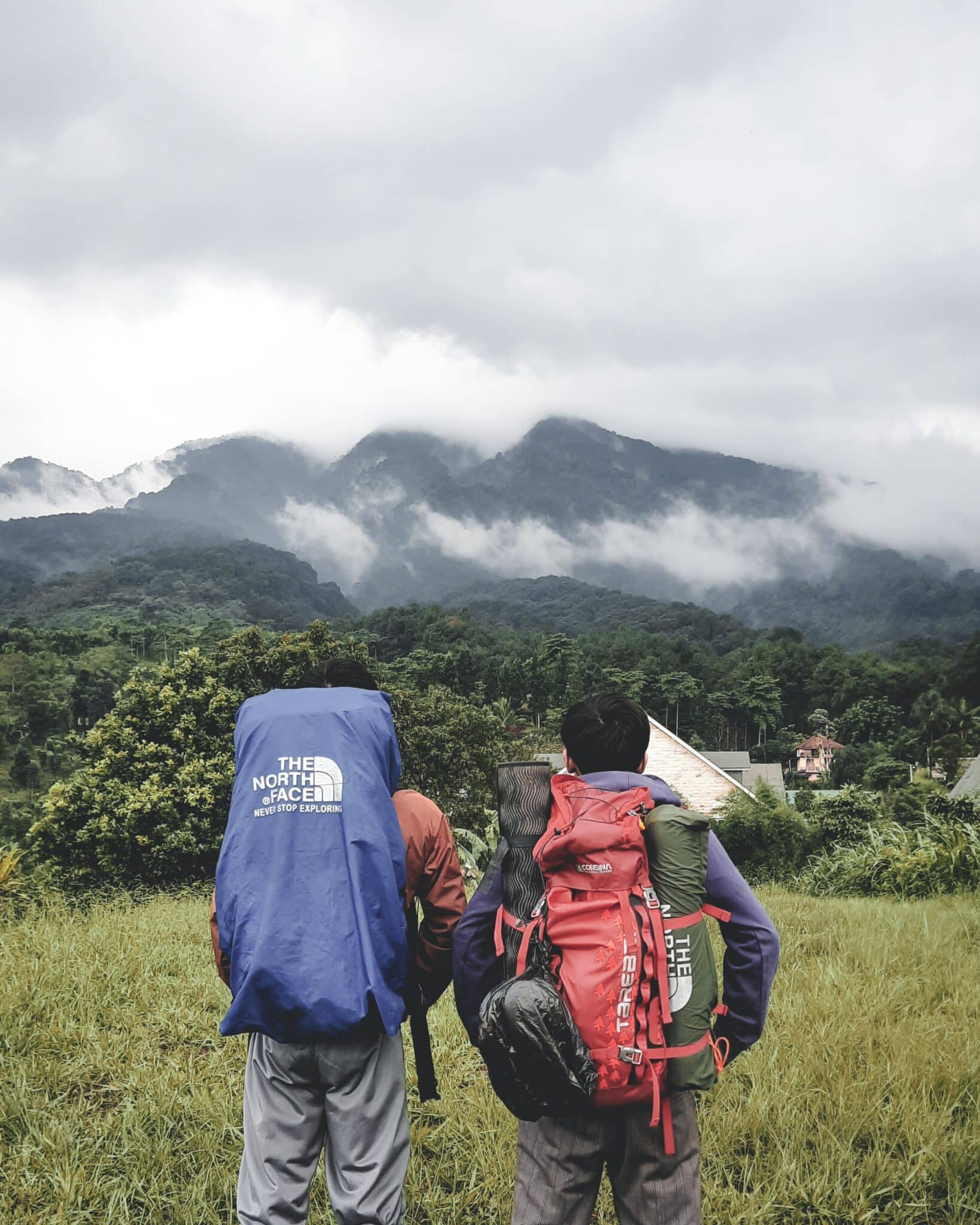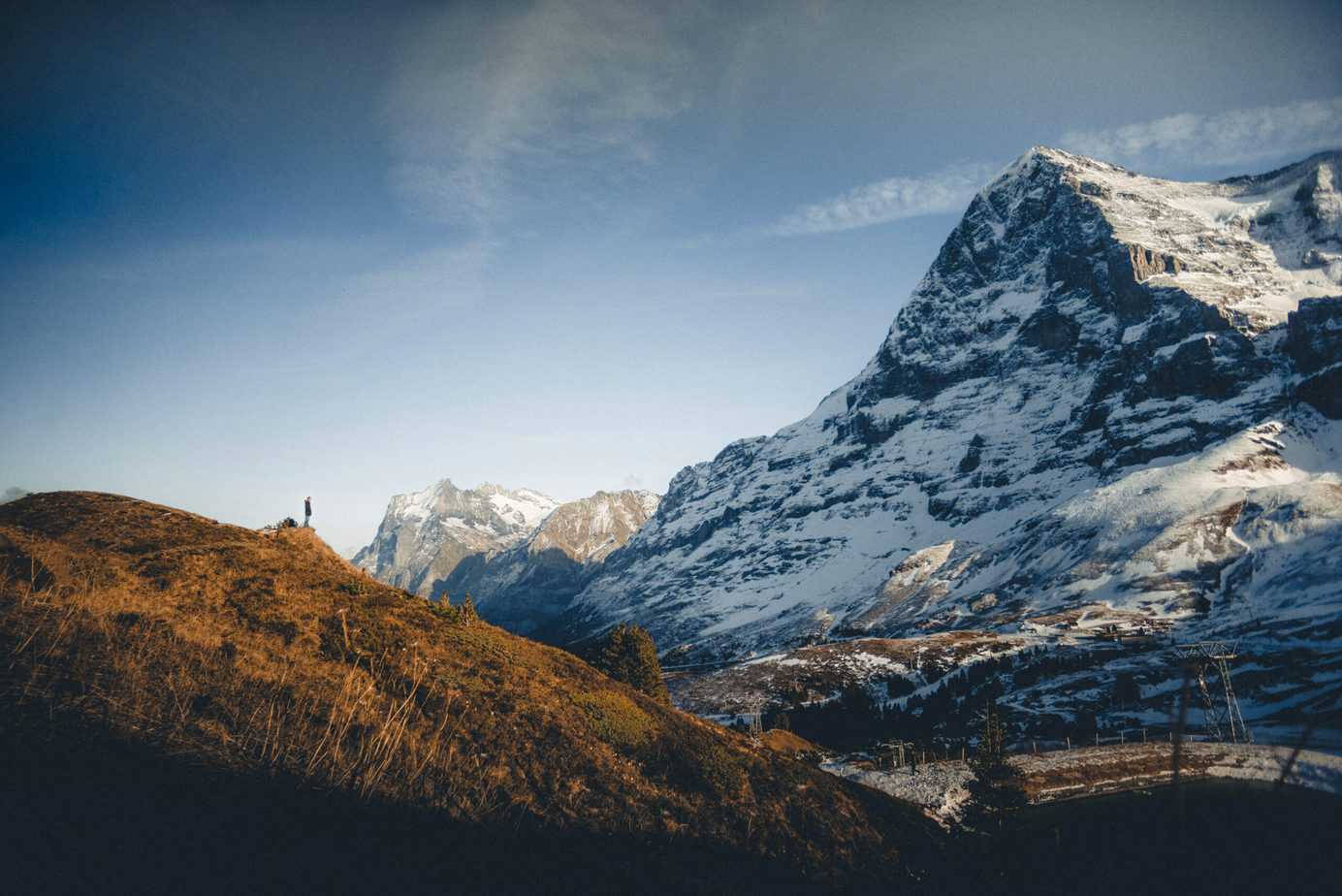Home to really long climbs and sometimes, even longer descents, Josh Whitmore, owner and operator of MTB Skills Factory, knows how to play in the dirt of North Carolina. The state is abundant in trails. From everything to flowy bike park trails to national forests with rugged backcountry terrain, a mountain biker will never get bored. Luckily, Josh’s company, MTB Skills Factory, can take clients wherever they want to learn how to clear a sketchy rock garden, shred downhill, or gain confidence in their bike handling skills.
We sat down with Josh to learn more about him as a coach and instructor, as well as his company, MTB Skills Factory. Keep reading to learn the ins and outs of being a mountain bike coach and instructor.
Why Did You Want To Become A Mountain Bike Instructor And Coach?
My background is in cycling. Mountain biking and cycling, in general, were a strong part of me becoming who I am, my identity, and my outlet to express myself and be who I am. To find confidence and my identity in the world.
All of my career activities throughout my life have been really focused on using outdoor adventure activities as a powerful medium to help people improve their lives. I love it when people can get better at riding their bikes. But behind the scenes, my true motivation is the process that they apply to it, and how they challenge themselves.
I like knowing I provide lessons they can use to improve their life. It’s also an outlet for health, connection with nature, challenging ourselves in a supportive way, and being able to explore that stuff.
How Long Have You Been Riding A Bike?
I was a professional bicycle racer first. When I was a young teenager, I really got into it. I was part of the Olympic Development Program for cross-country mountain bike racing. That was a long time ago when mountain biking was first in the Olympics in 1996. In the mid and early 90s, there was a bunch of money dumped into trying to develop Olympic-level bicycle racing.
In the late 90s, I stopped doing that as a full-time professional—when mountain biking became more of an international sport with the World Cup and the Olympics. Unfortunately, that was also a dark time for performance-enhancing drugs in international cycling competitions.
I got to the level where I was racing World Cups and saw that influx of performance-enhancing drugs, and I didn’t want to be a part of it. It was like, “Okay, um, this is something different from what I thought the sport was. And even though I love the sport, I don’t want to be a part of the competition side in this way.” So, I left the full-time competition world when I was pretty young, like, my early 20s.
Then I went toward an outdoor education career. I have both a Bachelor’s degree and a Master’s degree in Outdoor Ed and worked a lot as a NOLS instructor and an Outbound instructor for a long time. I was doing a lot of guiding of technical courses, like mountaineering, rock climbing, and whitewater paddling.
I also did a fair amount of private mountaineering and rock guiding. I’d kind of make the circuit from Patagonia in the winter to Alaska in the summer. That was awesome for a while. I still rode bikes a little bit, but I wasn’t racing or really teaching them. Then I got sick finally of full-time fieldwork and 300 nights a year in a sleeping bag—often sleeping on snow—and I decided I wanted to live in one place with a community of people around me I saw more than a couple times a year.
I moved back to where I’m from, which is here, in North Carolina. I had some aging parents that were needing some care and attention. Then I got back into cycling and got more into coaching. I started coaching when I was a teenager at summer camps and teaching mountain biking, but I got back into it a lot more when I finished Outdoor Ed.
Did You Reach Out To A Company Or How Did You Officially Get Into Coaching? Did You Start Coaching And Then Start Your Own Company? How Did That All Work Out?
I started coaching athletes through Carmichael Training Systems or CTS. I still do that, actually. It’s for endurance athletes. I write out workout plans, check in with them on the phone and email, and look at their files. We were doing a lot of in-person training camps at the same time with that company, so we had the structure of providing these training camps for road cyclists.
However, I started doing more mountain bike training camps with that company. During the camps, I would teach some skills with my previous knowledge. Then I discovered that there were certifications in the industry and I wanted to do a better job at it. So, I went through the certification courses from the Professional Mountain Bike Instructor Association and then started teaching skills clinics and that sort of thing through CTS.
I started apprenticing under some of my mentors in the area. I ended up doing more private lessons on my own, on the side, with my company, Josh Whitmore, LLC, and I got super busy. I was teaching as much as I could in person, with no advertising, and I was full—like two months in advance. I was turning away work because I just didn’t have room. So I finally was like, “Okay, I need to have a company. I need able to brand it and then have people work for me.” And now I have a company called MTB Skills Factory that uses the Origin platform.
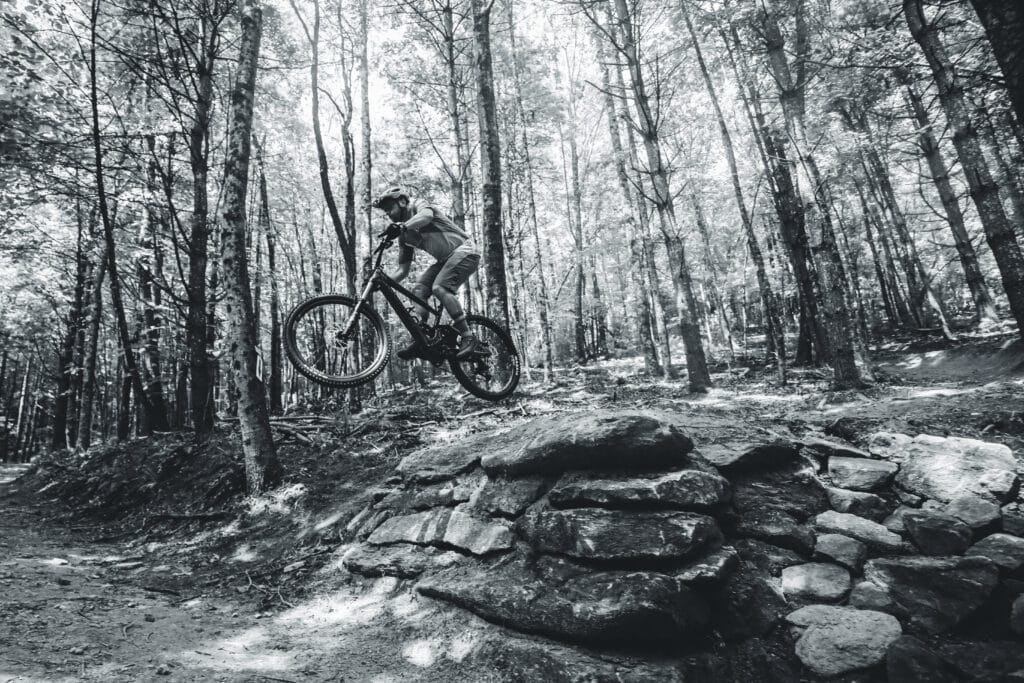
Tell Me More About MTB Skills Factory. What You Offer, How Long You’ve Been In Business, How Many Coaches You Have, Just All The Good Stuff?
We’re pretty small. I’m pretty new. You know, it’s really just been this year that I expanded to have people working for me. I’ve got four or five people that work part-time. They are often doing other things and then work for me part-time. I’m sort of the only full-time employee, as the owner and head coach.
We offer private lessons for mountain biking and group clinics for mountain biking. We’re the official built-in skills school at Kanuga Bike Park. And Kanuga’s opening actually a new location, that’s called Rock Creek. So we’ll have two locations to teach skills clinics.
Why Did You Want To Start Your Own Mountain Bike Skills Company?
I’m a reluctant business owner, to be honest. It’s a big responsibility to be in charge of all the admin and employees, like training, risk management, and insurance. So, I would say that I enjoy that less than the in-person work I do with clients.
However, I’d like to do it well, so I put energy into it. I started because I realized that my income was tied 100% to what I did in person. So, if I got sick or got injured, then I didn’t make money. Because I’ve got to postpone or cancel all those lessons, and then there’s no income coming in.
It seemed wise to grow the business to have people work for me and then be able to have some income coming in. Then when the partnership with the bike park came about, the volume of work was more than I could handle, so, I started this business to make that happen.
At least it’s exactly the way I want to do it, you know? It’s like, I’m not looking for somebody else to do something different. If I want to change something, I change it.
What Kind Of Job Opportunities Are There For People Who Are Either Aspiring To Become A Mountain Bike Coach Or Instructor? Or Maybe They Already Are And They’re Trying To Get In With A Company Or They Want To Start Their Own Business?
Yeah, well, I’d say that there’s an evolution of mountain bike instructors in the world where we’ve seen a lot of growth in that industry and profession.
We’ve got a lot of ski resorts that have a great ski and snowboard school built into the ski resort. A lot of those parks are creating bike parks in the summer. The ski schools just move all the skis out then they bring bikes in for the summer.
Also, just the rise of mountain bikes in general, like the amount of trail access and trail systems, and things are growing. People are starting to realize that they can take lessons and that it’s a fun thing to do—much like people taking a golf lesson or a tennis lesson or a ski lesson. That whole system is growing.
There are also bike parks that have their own skills school and stuff. There are folks like me who, even though we work at a bike park, also teach in other places. Then there are bigger organizations that do group clinics in various locations around the country. There are some opportunities for aspiring mountain bike instructors and coaches depending on where you are and how much you want.
What’s Your Favorite Part Of The Job? Both Being An Owner And Being An Instructor And Coach?
Spreading the stoke of bicycles and the role that they can play in people’s lives—getting people excited about it. It’s really rewarding to me to see people progress in their skills and gain confidence and to help them make that leap forward in their ability.
Then it’s also seeing how that affects the rest of their lives, how they tackle challenges, and the confidence that it breeds in them. It’s when they learn an approach to a challenging thing they can apply somewhere else. That’s really rewarding to me.
I’ve found I definitely have a passion for training instructors. I get to bring all my 25 years’ experience of teaching mountain bikes in to help train other people how to do it well. How to assess risk and how to make good decisions. I’ve been really enjoying having that community-building aspect with my staff and the community-building aspect of skills instruction in our community. We’re trying to break down some barriers to entry for riding and get more people on bikes. And try to have a starting point for a lot of folks that are less intimidating and more personable.
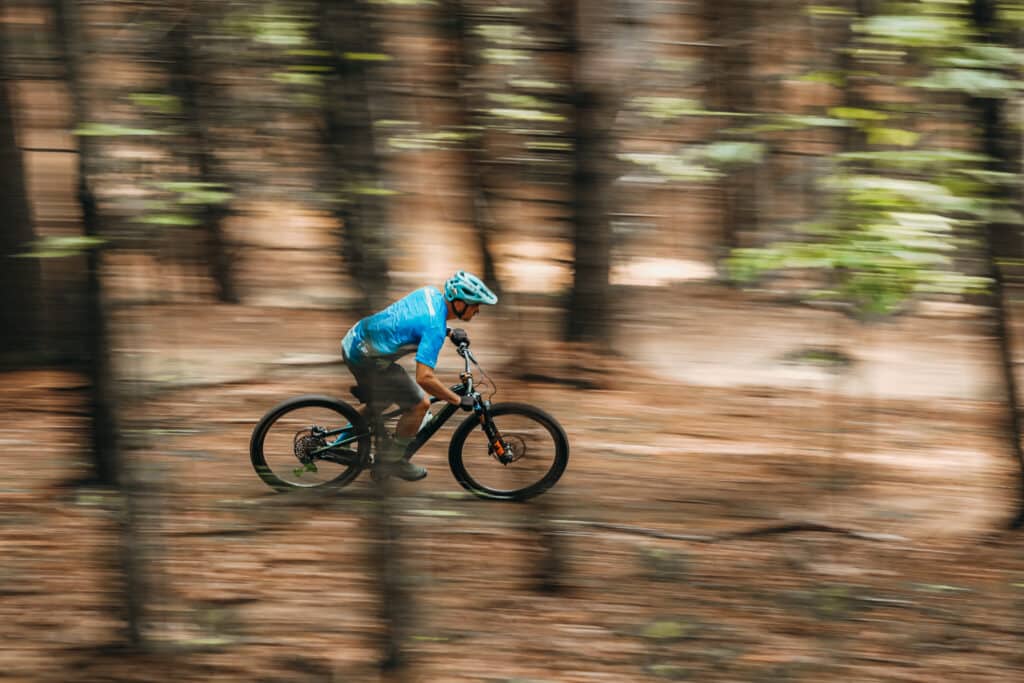
Is There Anything Specific That You Do To Help Lower The Barrier To Entry?
We think about all different affinity groups: male and female, LGBTQ+, and BIPOC riders. It’s proven that it helps to learn in an environment with people that are similar to you. Some of the weird social barriers are gone. It’s an important part of the outdoor industry on how to increase participation.
We actually have more female employees than male employees, so we are gender diverse. I’ve got some ideas in the development space of how to work towards that, but we do offer our clients the choice of a female instructor. We do offer some all-female group clinics too.
What Are Some Hard Truths About Either Coaching? Other Mountain Bikers Teaching New Instructors?
The certification courses are awesome. I think people tend to underestimate the role of having experience, mentorship, or apprenticeship under more experienced instructors. What’s happening, both in Canada and the United States, is that we’re certifying people with the single three-day training. A lot of those folks are starting their own companies as mountain bike instructors and are teaching people in the mountain bike environment with very little experience.
There are more new instructors out in the market and unfortunately, there are more accidents that have been happening that are related to risk management by new instructors. They lack experience and the mentorship to assess riders quickly and choose terrain for what’s going to manage risk well. So these accidents have driven up insurance prices. It’s now harder for mountain bike instructors and companies to get commercial liability insurance. My insurance costs are going to increase by at least 50% in 2023. In Canada, it’s more like 200%.
In order to do well and manage appropriately, not only do you need some training and certification but also to apprentice and mentor under other companies with folks that have a body of experience to be able to lend some more knowledge.
I Know Different Kinds Of Professions Require A Certain Length Of Time That You Should Be Like Apprenticing For. Is There Like A Good Time? Or Is It One Of Those Things Where It’s Like If You Can lead Your Own Groups, Then You’re Ready To Run It Yourself?
The timeline sort of depends on your frequency of doing it. For instance, if you got a job as a mountain bike instructor at Whistler bike park, you’re gonna be working 40 hours a week teaching lessons, right? It’s a lot of lessons, right? In that kind of case, there’s a policy and procedure from the company, and you’re going to start out co-teaching with a more experienced instructor. Then until you show competency in the way of making good decisions and risk management, then maybe become the lead instructor, and eventually move to start your own business if you wanted.
I think that there are lots of opportunities with some of these bigger national organizations that come through areas to do group clinics. Even just to volunteer and shadow or to be a co-instructor with more experienced folks. It’s a multiple-year investment.
How Do You See Mountain Bike Coaching And Instructing Evolving In The Future?
I see that it’s becoming more acceptable as a professional service. Sometimes, clients are surprised at how much it costs to take the lesson. Sometimes I get feedback about the cost barrier, and I have to tell them, “This feeds my family.”
This is a job. I have to make a living to make enough money to do this. This is my profession. I’ve been doing this my whole life. I have degrees and certifications. I have overhead with insurance, permit fees, lawyer fees, taxes, and all the things, right?
To turn it into this kind of professional thing, then you’ve got to charge a price that is reasonable for the service. And yeah, I mean, there are definitely other companies that offer the same service on paper for less price, but, you know, they’re often going to be new instructors with less experience.
But it’s becoming more of a professional thing. People will spend the money on good skills instruction. That’s becoming more acceptable.
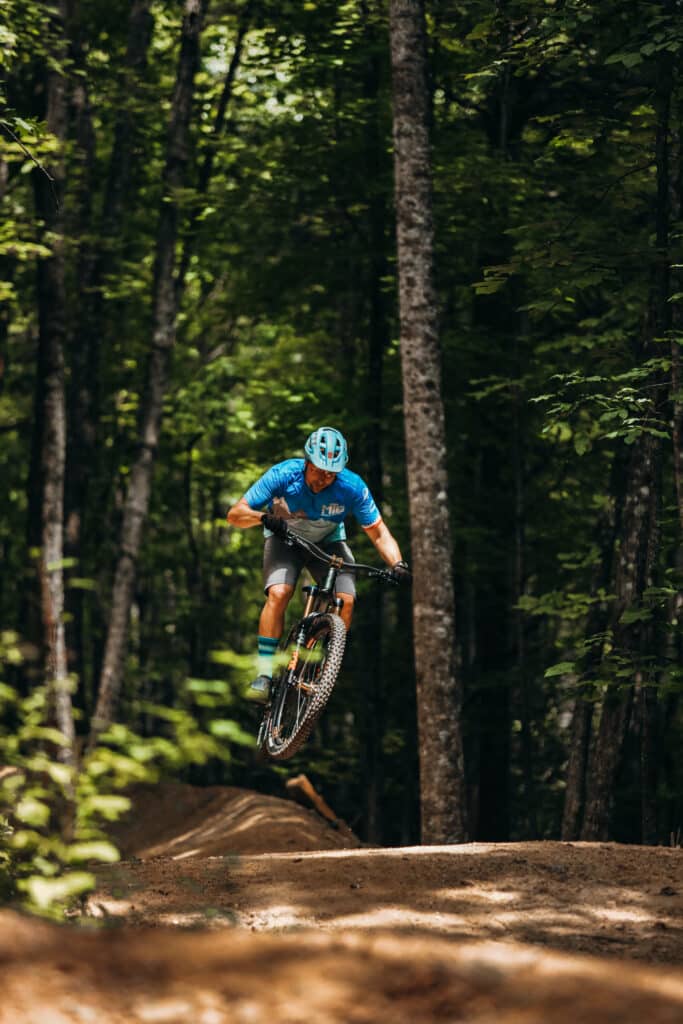
What’s Something About Your Job That Most People Don’t Realize?
I love bikes. I love to ride bikes. I would say that is related to but separate from the love of teaching people how to ride bikes. For instance, when I’m working, I’m 100% in instruction mode. I focus my entire being on how to provide an excellent lesson, take care of the customer, and manage risk. I do not focus it on my needs of how to ride my bike or my joy of riding my bike. Yeah, I get to ride but often, you know, it’s the hazard of when you do something as a hobby and if you do that for your job, it turns into work.
If I teach three or four, two-hour lessons in a day, I get done at 6 pm or something, I’ve been on my bike all day. So then, do I want to go for a bike ride? For my own time? No, I want to go home and put my feet up. So, sometimes the teaching part of it gets in the way of my own personal enjoyment of riding and having my own time to enjoy my time on the bike.
It’s enjoyable to be on the bike and in that environment, but there are times when it’s work. I just taught a couple of certification courses and the last one had people come from all over the country to take this course. And it rained for three days here. So we’re out riding in the rain in like 45-50°F weather for three days. I know how to do that. I have the right gear, but I’d rather have like a 70°F, perfect day. Instead, we were shivering in the rain for three days. And that was part of my job. Yeah, so that’s another part of it that people don’t realize.
About MTB Skills Factory
MTB Skills Factory aims to inspire and empower riders through intentional skills instruction, focused practice, and thoughtful analysis/feedback. Their goals are to deliver quality mountain bike skills training that: Increases confidence on the bike, is fun and playful, yet methodical and precise, empowers riders through intentional skills application, builds a supportive and inclusive community, and is welcoming of all abilities, backgrounds, and goals
Visit them at their website: https://www.mtbskillsfactory.com/

